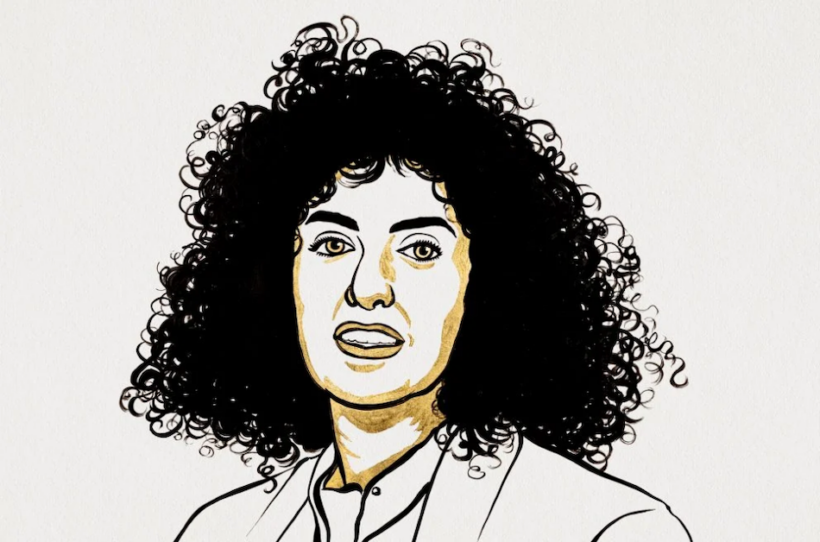Secretary-General António Guterres and other senior United Nations officials celebrated the award of the 2023 Nobel Peace Prize to imprisoned Iranian journalist and human rights activist Narges Mohammadi.
The Nobel Prize “is a tribute to all those women who fight for their rights at the risk of their freedom, their health and even their lives,” Guterres said in a statement.
It is “an important reminder that the rights of women and girls face a major setback, including through the persecution of women human rights defenders, in Iran and elsewhere,” Guterres added.
Mohammadi, 51, was chosen out of 351 nominations for this year’s Nobel Peace Prize “for her struggle against the oppression of women in Iran and the promotion of human rights and freedom for all,” the prize’s president, Berit Reiss-Andersen, said in Oslo when the award was announced.
The activist has worked for many years as a journalist for various media outlets and co-directed the Tehran-based civil society organisation, the Centre for Human Rights Defenders.
She is currently serving a 16-year prison sentence in the capital’s Evin prison, with periods of severe solitary confinement, and her health is affected. Since 1998 “the Iranian regime has arrested her 13 times, convicted her five times and sentenced her to a total of 31 years in prison and 154 lashes”, Reiss-Andersen recalled.
“This Nobel Prize is a tribute to all those women who fight for their rights at the risk of their freedom, their health and even their lives”: António Guterres.
The awarding of the prize coincides with the anniversary of the large protest demonstrations over the torture and death in police custody on 16 September 2022 of Mahsa Amini, the young woman arrested by Iran’s morality police for failing to comply properly with the country’s strict laws on compulsory headscarf wearing.
At least 525 people were killed in the demonstrations, including 71 minors, and 19,500 were arrested, according to the Iranian Human Rights Activists News Agency.
The Norwegian committee in charge of the Nobel Peace Prize hopes that “the women’s movement in Iran will continue and not be defeated”, and also that “if the authorities make the right decision, they will release Mohammadi, who can then be present to receive this honour” in Oslo in December.
The humanitarian organisation Amnesty International also began calling for the release of Mohammadi and other imprisoned activists, in response to the Nobel.
The office of the UN High Commissioner for Human Rights (UNHCHR) welcomed the awarding of the prize to the activist because it “underlines the courage and determination of the women of Iran”.
“I think what is absolutely clear is that the women of Iran have been an inspiration to the world. We have seen their courage and determination in the face of reprisals, intimidation, violence and arrests,” spokeswoman Liz Throssell told reporters in Geneva, Switzerland.
She added that Iranian women “have been harassed because of what they wear or don’t wear, and there are increasingly strict legal, social and economic measures against them”, so “their courage and determination have been notable”.
The United Nations Educational, Scientific and Cultural Organisation (Unesco) also congratulated Mohammadi on the Nobel Prize and recalled on its social media that last May it awarded her, along with two other Iranian journalists, its “Guillermo Cano” World Press Freedom Prize.
These two journalists, Niloofar Hamedi – who broke the news of Amini’s death in custody – and Elaheh Mohammadi, wrote for reformist media in Iran and were sent, like Narges, to Evin prison.
Human rights defender organisations have also recalled that Narges Mohammadi’s health has suffered from isolation, heart attacks and denial of medical care. Her husband, political prisoner Taghi Rahmani, and her teenage twin sons, live in exile in France.






